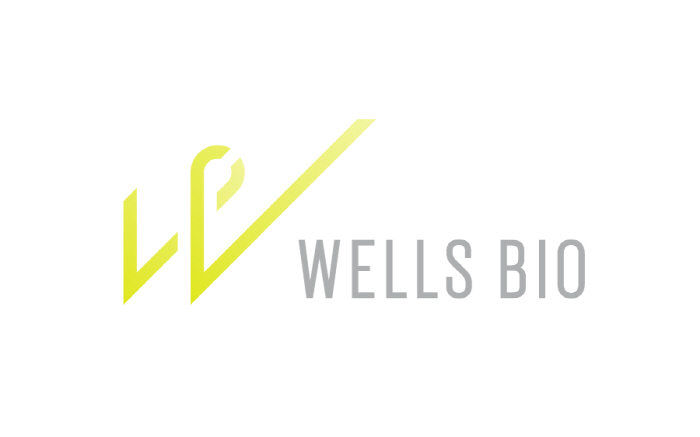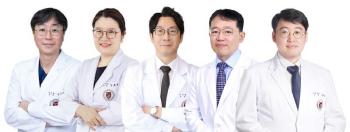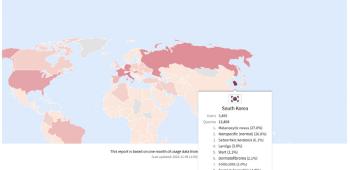Wells Bio selects the final government project in connection with the R&D Special Zone Promotion Project in 2025
May 19, 2025
'Wells Bio Co., Ltd.'(CEO Lee Min-jeon), a subsidiary of the global in vitro diagnostic company 'Access Bio', announced on the 19th that it was finally selected for the government project linked to the '2025 Special R&D)'.
Under the supervision of the Ministry of Science and ICT, the "2025 R&D Special Zone Promotion Project" is a large-scale project to promote technology commercialization and start-ups using R&D performance of public research institutes. Wells Bio worked closely with the Korea Chemical Research Institute in the Daedeok Special Zone to apply for the category of 「Strategic Technology Research Performance and Commercialization Support」 and achieved the final selection.
The selection project is a research and development project worth a total of 700 million won, and Wells Bio plans to complete the development of a high-sensitivity STD antigen detection kit using biomolecule-intensive technology by December 2026, and in particular, it plans to accelerate the commercialization of the technology in line with global market trends that require diagnosing anxiety about STDs prevalent worldwide, such as 'HIV, syphilis'.
In particular, the core of this project, 'deposition-free zinc oxide seed layer formation technology', is a groundbreaking technology that increases the aggregation efficiency of biomolecules by expanding the surface area by applying zinc oxide nanowires to immunodiagnostic substrates, and has the advantage of being able to differentiate technology by supplementing the limitations of existing products.
According to a survey by the global research institute 'VMR', the size of the global market related to the 'HIV, syphilis, and hepatitis B/C' test is expected to grow at an annual average of about 7% to reach about 5.2 trillion won in 2029. In particular, in the case of HIV and syphilis, 48.3% of the world's HIV-infected people are infected with syphilis, and as a result, the need for simultaneous diagnosis is increasing day by day, market demand continues to increase.
"The final selection of the government project is possible because the company has successfully developed and advanced technology in the diagnosis of sexually transmitted infectious diseases. We will succeed in launching the next generation of worry-sensitive diagnostic kits through synergy between our excellent commercialization know-how and the original technology of the Korea Chemical Research Institute, and establish ourselves as a company that can lead the global diagnostic market in the future," said Lee Min, former CEO of Wells Bio.
Meanwhile, Wells Bio is a subsidiary of Access Bio, a KOSDAQ-listed US corporation, and is a company specializing in the development and production of in vitro diagnostic medical devices established in 2013 to develop next-generation diagnostic products. Wells Bio is successfully distributing various diagnostic reagents to domestic and foreign markets, focusing on the Real-Time PCR-based molecular diagnostic reagent 'careGENE™ STD-12 detection kit', which can diagnose 12 pathogens that cause sexually transmitted infectious diseases at the same time.
Under the supervision of the Ministry of Science and ICT, the "2025 R&D Special Zone Promotion Project" is a large-scale project to promote technology commercialization and start-ups using R&D performance of public research institutes. Wells Bio worked closely with the Korea Chemical Research Institute in the Daedeok Special Zone to apply for the category of 「Strategic Technology Research Performance and Commercialization Support」 and achieved the final selection.
The selection project is a research and development project worth a total of 700 million won, and Wells Bio plans to complete the development of a high-sensitivity STD antigen detection kit using biomolecule-intensive technology by December 2026, and in particular, it plans to accelerate the commercialization of the technology in line with global market trends that require diagnosing anxiety about STDs prevalent worldwide, such as 'HIV, syphilis'.
In particular, the core of this project, 'deposition-free zinc oxide seed layer formation technology', is a groundbreaking technology that increases the aggregation efficiency of biomolecules by expanding the surface area by applying zinc oxide nanowires to immunodiagnostic substrates, and has the advantage of being able to differentiate technology by supplementing the limitations of existing products.
According to a survey by the global research institute 'VMR', the size of the global market related to the 'HIV, syphilis, and hepatitis B/C' test is expected to grow at an annual average of about 7% to reach about 5.2 trillion won in 2029. In particular, in the case of HIV and syphilis, 48.3% of the world's HIV-infected people are infected with syphilis, and as a result, the need for simultaneous diagnosis is increasing day by day, market demand continues to increase.
"The final selection of the government project is possible because the company has successfully developed and advanced technology in the diagnosis of sexually transmitted infectious diseases. We will succeed in launching the next generation of worry-sensitive diagnostic kits through synergy between our excellent commercialization know-how and the original technology of the Korea Chemical Research Institute, and establish ourselves as a company that can lead the global diagnostic market in the future," said Lee Min, former CEO of Wells Bio.
Meanwhile, Wells Bio is a subsidiary of Access Bio, a KOSDAQ-listed US corporation, and is a company specializing in the development and production of in vitro diagnostic medical devices established in 2013 to develop next-generation diagnostic products. Wells Bio is successfully distributing various diagnostic reagents to domestic and foreign markets, focusing on the Real-Time PCR-based molecular diagnostic reagent 'careGENE™ STD-12 detection kit', which can diagnose 12 pathogens that cause sexually transmitted infectious diseases at the same time.
|
This article was translated by Naver AI translator.














